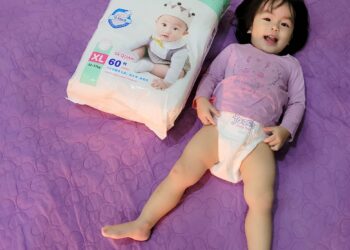On February 3, 2022 evening, Jo Vietnam diaper brand, in collaboration with aFamily, organized an online exchange program with experts on the theme: Raising Children Livestream “Unlocking Your Beloved Child’s Secret World”.
Surely, every parent has faced moments of uncertainty when their child refuses to eat, cries incessantly, has trouble sleeping at night, or when they are concerned about ensuring both their own and their baby’s health during the Covid season. Read on to discover the answers.
On February 3, 2022 evening, Jo Vietnam diaper brand partnered with aFamily to organize an online exchange program with experts on the theme: “Unlocking Your Beloved Child’s Secret World”.

During the exchange session, the audience had the opportunity to hear from MA. Pham Thi Net, MD, a pediatrician from the DND Brothers International Healthcare System, who addressed queries about baby care. The session provided insights into caring for and raising children amidst the current Covid situation.

In the livestream program, Dr. Net also shared a general approach to help parents understand a child’s behavior and reactions, suggesting the following four questions when faced with any behavioral issues in children: What is happening with the child? Why is this happening? What can we do? If the current approach isn’t effective, what should we do?
Answering these questions can help parents understand why the child behaves that way and what they can do to address the issue.
What should parents do when a child refuses to eat?
There is a truth: Some children require very little food and remain healthy. Therefore, parents should portion meals, patiently introduce new foods to diversify their diet, avoid force-feeding, encourage self-feeding even if there’s a mess. Respect the child’s eating needs, refrain from imposing, and instead, encourage and attend to the child’s needs.

In instances where a child refuses to eat, adults including parents and grandparents need to change their mindset to learn to listen to the child’s body and needs. Each meal should be a joy for the entire family rather than a battleground between adults and the child or among adults themselves.
To ensure a good night’s sleep for your child
Parents should create a bedtime routine by establishing a quiet and comfortable environment. Turn off lights and electronic devices. Dress them in comfortable clothes, provide clean and soft bedding. Avoid rough play or excessive physical activity at least 2 hours before bedtime.
Avoid letting young children breastfeed or eat excessively before sleep, especially foods with high water content or those that promote urination, as it may lead to more frequent urination or potential leaks causing discomfort for the child. To mitigate the risk of leaks, there are highly absorbent diaper brands available in the market that keep the child dry and comfortable throughout the night.
5 criteria to select clean and safe diapers for children
The first criterion is safety: diapers with a clear origin, meeting health standards, and sourced from quality imported materials. The second criterion is good absorbency. The third criterion is softness. The fourth criterion is breathability.
You can check the breathability of a diaper by pouring a cup of water at a temperature similar to urine onto it. Place the cup on the absorbent layer, and if after 15 seconds the cup becomes foggy due to moisture escaping from the bottom layer, it indicates good breathability. The fifth criterion involves applying antibacterial technology to create a standard clean diaper (such as Nano Silver technology).
Mothers infected with Covid-19 can still care for their children normally
In recent days, the Covid pandemic has been spreading widely and has had complex developments. Everyone is at risk of contracting the disease. However, mothers can rest assured that even if they’re diagnosed as Covid-positive (F0), they are still entirely capable of caring for and being in close contact with their babies.
Research from various health experts has shown that the risk of newborns contracting Covid from their mothers is very low. Even if they do contract the virus, the symptoms tend to be mild and recover quickly. To date, there hasn’t been any evidence of transmitting the COVID-19 virus through breastfeeding or nursing. Therefore, there is no reason not to breastfeed or stop breastfeeding a child.
Mothers should adhere to preventive measures such as:
Regularly washing hands with soap and clean water or using alcohol-based hand sanitizer, especially before touching the child.
Wearing a medical mask whenever in contact with the child, including while breastfeeding.
Sneezing or coughing into a tissue. Dispose of the tissue immediately and wash hands afterward.
Regularly cleaning and disinfecting surfaces touched by the mother.
Hopefully, the shared knowledge here will assist parents in accumulating valuable experiences in their journey of providing a peaceful and caring environment for their children.







